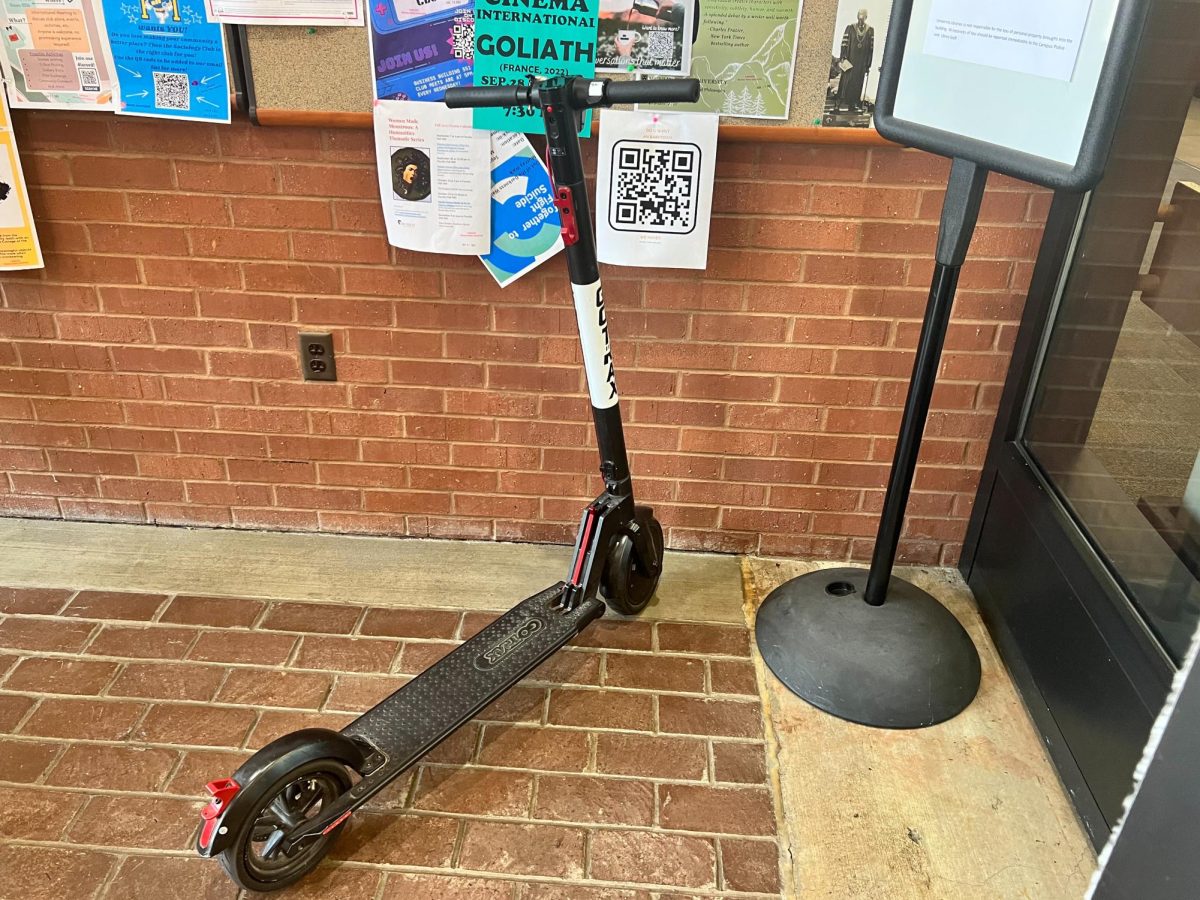Electric scooters may provide students with efficient transportation to class, but they have created challenges for maintaining campus safety. More students have begun to embrace the speedy convenience of electric scooters.
The majority of these scooters operate with lithium-ion batteries, which are known to overheat. According to the National Fire Protection Association, damaged or defective batteries could explode or catch fire. The NFPA suggests these batteries be stored at room temperature when possible in order to prevent this from happening.
Electric scooters’ fire potential increases as the weather begins to cool down. However, buildings around campus have begun asking students to leave these scooters outdoors on the bike rack instead of bringing them inside.
This is due to the reckless riding and parking of these vehicles disrupting the daily activities of staff and students. For instance, in Wilson Hall, students have been spotted riding their scooters in the hallways and carelessly leaving them there. This has resulted in black scuff marks across the carpet flooring and has created a tripping hazard.
Misty Harris, journalism and mass communications administrative assistant, attempted to rid the issue by posting signs and directing students to leave the scooters at the outside bike rack.
“I did not mind the scooters until they began damaging our building,” Harris said. Despite Harris’ effort, students have continued to bring their scooters indoors.
Kevin Qualls, chair of journalism and mass communications, said not everyone is aware of the hazards caused by these scooters.
“I’d like to think that people aren’t wanting to damage the building or create hazards, but they should be aware that their actions are causing problems,” Qualls said.
Waterfield Library also asked students not to bring their scooters inside and to leave them in the exit vestibule.
“This policy was put into place because we frequently found scooters left unattended, blocking walkways and doorways, creating a tripping hazard,” Cris Ferguson, dean of libraries, said.
Currently, there is no campus-wide policy dictating where the scooters should be stored. The University is aware and working towards addressing the issue, especially regarding the risks associated with the usage of lithium-ion batteries. In the meantime, students should remain mindful of their actions and impact on their fellow Racers.




























































































